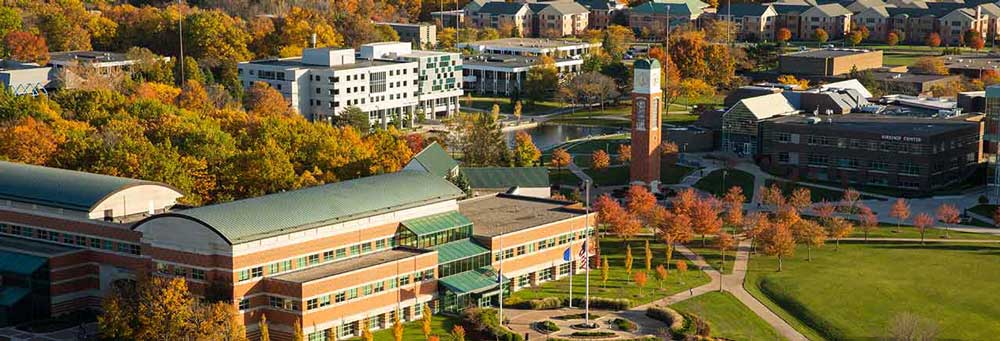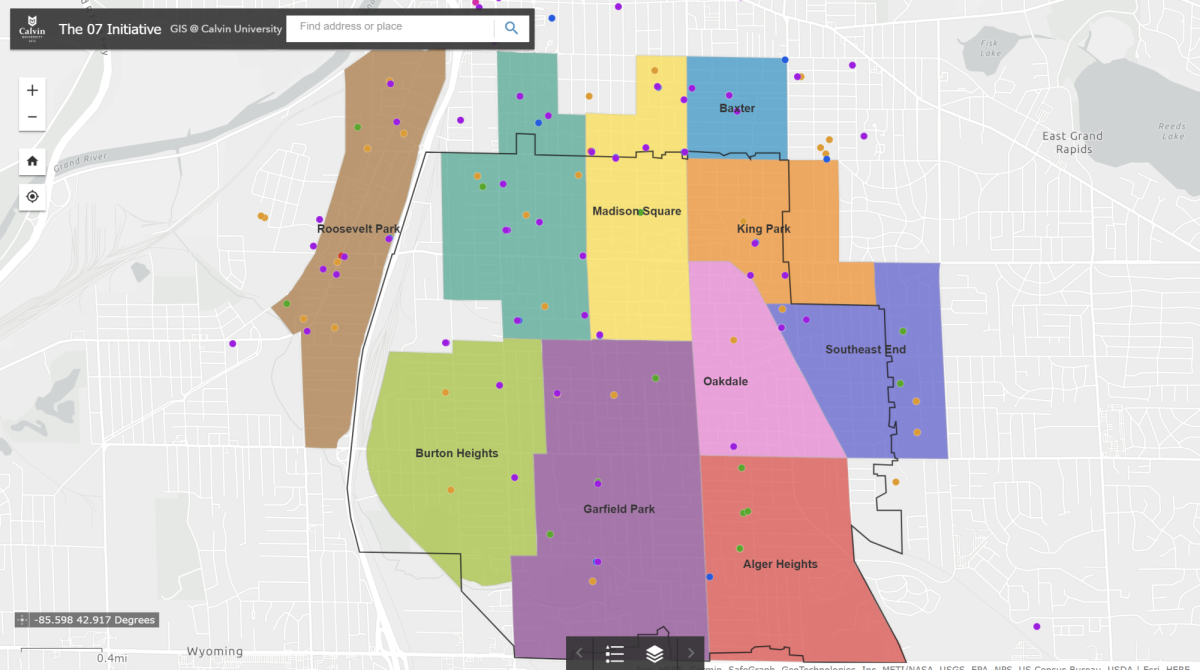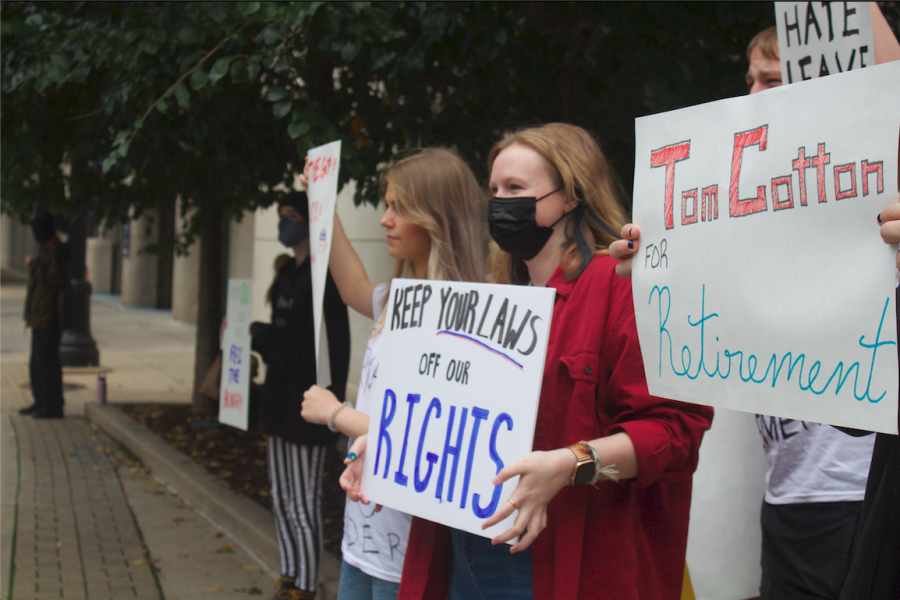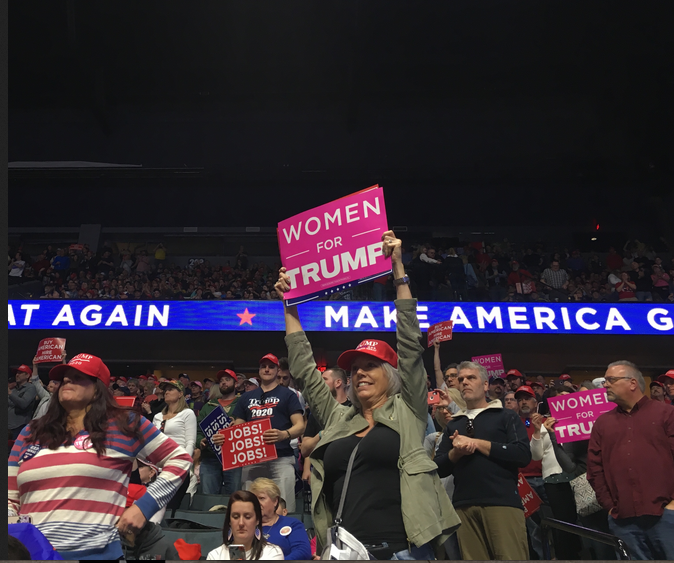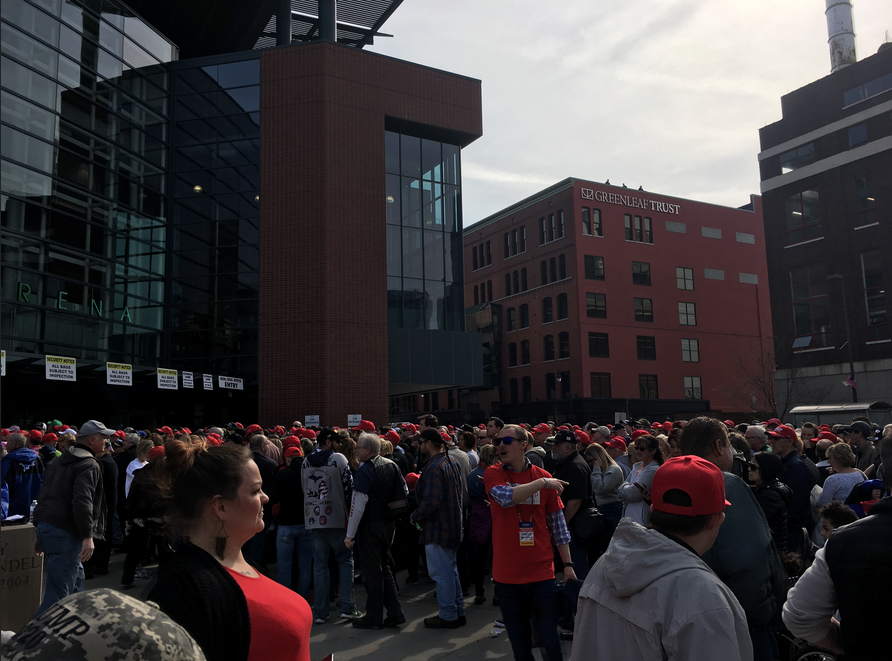Grand Valley State University (GVSU) loosened its regulation of on-campus free speech last week as part of a settlement with conservative student group Turning Point USA.
GVSU no longer requires students to schedule “expressive activity” in advance with the event services office. “Expressive activity” includes protests, speeches, vigils, demonstrations and meetings of groups of students, as well as distribution of literature — activities associated with free speech rights.
Before the suit, the university’s policy restricted expressive activity to two areas, the path around the Cook Carillon Tower and the area around the Transformational Link sculpture. In addition, activity had to be scheduled in advance with the university.
Student leaders of the GVSU chapter of Turning Point USA filed a lawsuit against the school last December. Turning Point USA operates the Professor Watchlist that features Calvin social work professor Joseph Kuilema. The list claims to alert students to professors who discriminate against conservative viewpoints in the classroom.
In the suit, the students claimed that university police had threatened to charge them with trespassing if they continued to speak to other students outside of the designated free speech zones. The Turning Point group had been asking students to write on a massive beach ball they called the “free speech ball.” The group was also reportedly passing out pamphlets and using a megaphone when they were confronted by university police.
The students argued that the college places unreasonable restrictions on free speech by limiting free speech to areas that make up just 0.03 percent of the campus. They also claimed that their expressive activity was treated more harshly than some anti-Trump demonstrations, which the students alleged were permitted to protest outside of the zones without consequences.
On March 1, the university settled the lawsuit by agreeing to revise the policy and pay $11,025 to cover the legal fees of the plaintiffs, reported the Grand Rapids Press.
The university’s policy still requires expressive activity to meet several parameters, such as not blocking foot or vehicle traffic or blocking building entrances. The new policy also retains time limits on expressive activity; activity is permitted between 8 a.m. and 5 p.m., with hours extended for the Carillon Tower and Transformational Link sculpture areas.
Calvin College’s analogous policies require students to go through official channels for “expressive activity” such as protests and distribution of literature.
Students wishing to hold protests or demonstrations should notify the college through the dean of students, John Witte. Witte, who has held the position less than a year, notes that formal protest requests are rare at Calvin. His predecessor, Bob Crow, saw only one protest request in his 15-year tenure as dean of student development.
Witte explained that it’s not that students aren’t passionate about issues or critical of Calvin, but that Calvin has in place so many other channels for students to express their views to the administration.
“If we had a situation where students had a strong dissent and wished to protest an internal policy or situation, I’m guessing they would be more likely to work through administrative channels first — talking to student senate, setting up a meeting with a key administrator or two, writing an opinion piece in [Chimes], etc.,” Witte said.
Calvin’s student handbook largely restricts students from distributing literature unless in connection with a student organization or with approval from the dean of students. The handbook states: “All materials published, circulated or posted on campus must be approved by the faculty, its committees or organizations delegated by the faculty. Ordinarily such materials must be sponsored by properly constituted student organizations.”
Witte explained that the policy primarily serves to protect the campus from being overwhelmed by literature from groups outside the Calvin community, and he emphasized that the procedure makes it easier for Calvin-related groups to distribute information within the community, since they don’t need to compete with outside groups.



